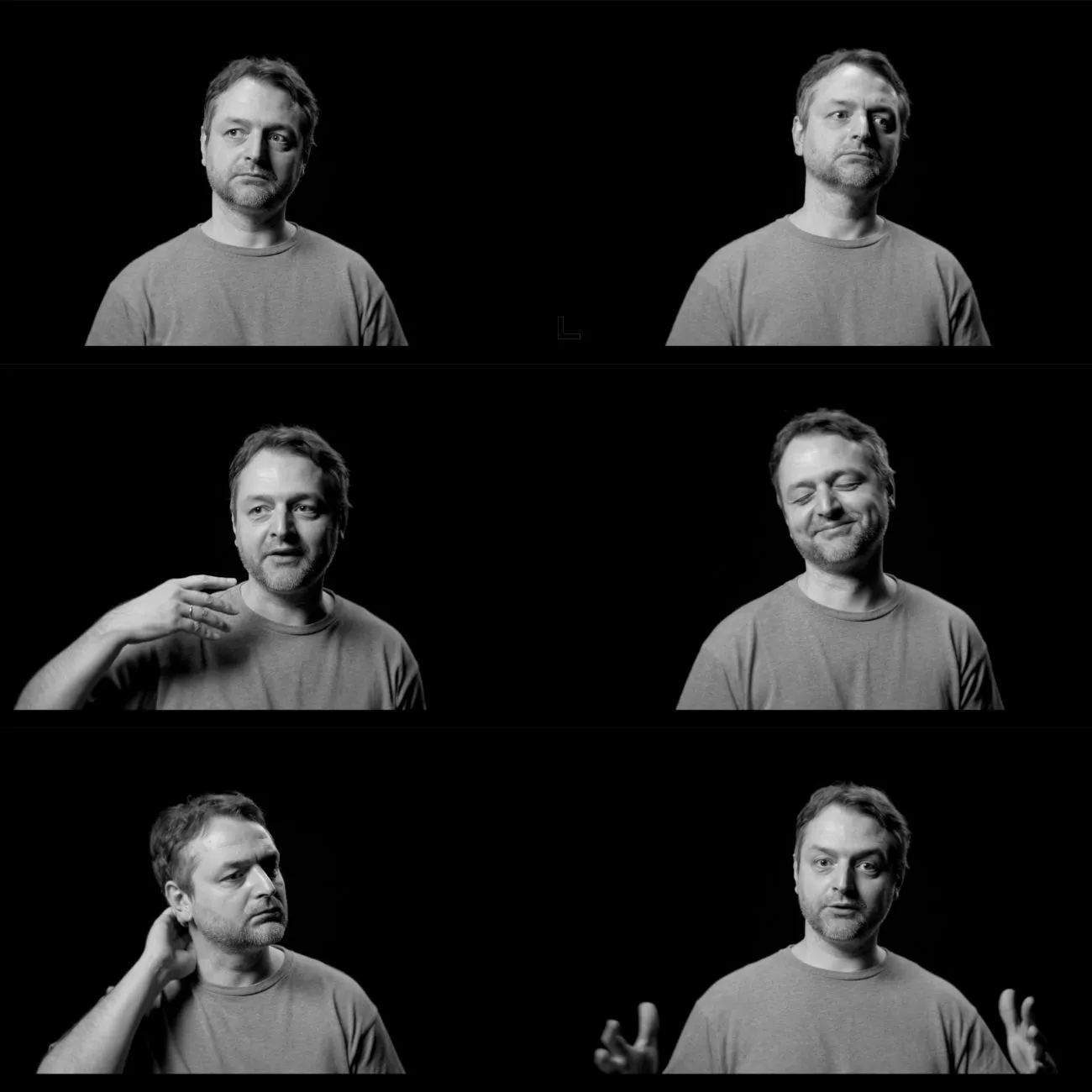Alexander Gronsky
Photographer and artist, winner of several professional awards. Continues to work in Russia

My first creative experience as a child was wanting to draw the entire view from my window, the whole panorama, all the homes and the park. I didn’t know how to draw, it was hard. But I had this need for a complete picture of the world, a complete artistic event, a complete drawing. The tree, sun or house standing on their own just didn’t cut it.
I continue to work in that spirit today — like a Google Street View machine that assembles giant panoramas.
I’ve found myself, of course, in a wild situation, but I’m the best-equipped individual to handle it. I have experience that has prepared me, or maybe more accurately, a certain random but relevant set of qualities: I know how to exist on my own, to barely communicate with the outside world, and I know how not to panic about being arrested. I feel well-suited for my current role. Of course that doesn’t cancel out my dismay at what’s happening. At the same time, it’s probably the first time in my life that I’ve felt social responsibility. It sounds silly, but if not me, then who?
In my field, it’s like I’ve been left in charge: if I don’t shoot something, don’t record it, no one else will. Or maybe someone will suddenly think to do it, but they’ll be too late. These are new experiences for me, and it’s quite exciting. It’s like catching a ball out of nowhere. I was minding my own business, walking around the stadium, and suddenly there’s a ball. Now I just have to run with it because there’s no one else to pass to.
Every day, I read about horrific events, but I can picture them in my mind. I understand that it’s happening somewhere out there, but fortunately I don’t usually witness them directly. Ever so often a catastrophe actually happens in close proximity to me. The abstract world of the news and everyday reality converge. I’m not a press photographer, so it’s a strange situation for me. As a rule, I want to step back, make a wider frame, and show not only the fire that will make the news, but also the inconspicuous yard around it. It’s as if major events can pierce through the surrounding reality.
I started to feel something similar when the discourse and images on TV started to seep into the landscape, onto digital billboards in the midst of trees and garages. It was like reality was floating, and that hidden, unseen world that we talk about in the news, but which we almost never encounter in everyday life, appeared inside of it.
Before, when I lived without a television, I almost never came into contact with news from [Russian state news broadcaster] Channel One in my everyday life. Now I can’t hide from it: there are propaganda announcements on digital billboards. The border that allowed people to go into internal emigration has been breached.
At the same time, some of the statements on television have ceased to function as messages — they’re more like ornaments made of words. New euphemisms emerge. For example, when there’s a drone attack absolutely all media outlets will say: "Debris [from shot down drones] fell". Why does debris fall so precisely? We know the answer to this question and simply put the phrase in quotation marks.
But during real-life communication, there inevitably comes a moment when you don’t know where your interlocutor puts those quotes. It’s interesting to try to determine where, exactly, they’re implied.
I don’t always understand how people see my photographs. I understand perfectly how people who have been out of the country for the last three years see them — many of them write me comments. But how do people who live in Russia, especially people with different viewpoints, see them — that’s unclear. I don’t know if it’s permissible to show these photos in Russia right now. What do they show? Does anyone see in my photos a denigration of reality? In three years, I’ve never had any serious complaints. Maybe I’m within the bounds of what’s permitted, or maybe no one has yet to pay any serious attention to me.
I think that my work has some effect, above all because there seems to be an audience for it. A sense of unity, a sense of connection is of the highest value right now. Let’s say two people meet up, one will say, "I like Gronsky’s photographs", and the other will answer, "Me too". If this brings them closer together, if they can share these images of loneliness with each other, then perhaps that’s my social contribution.